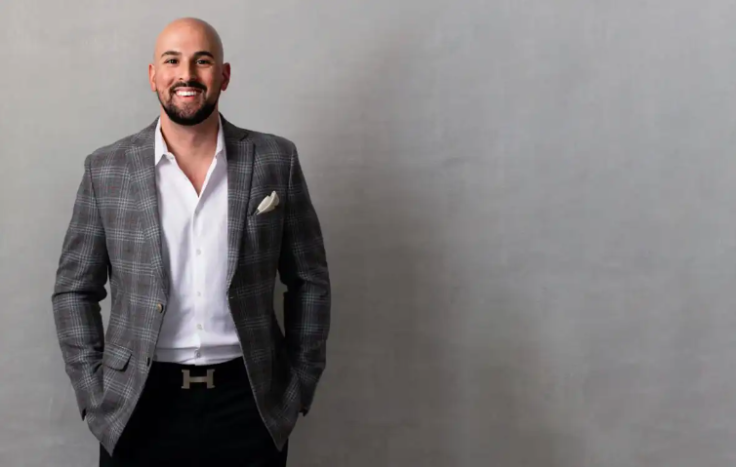How One Plastic Surgeon Mastered Sacrificial Leadership

Are leaders born, made, or both? You'll find all kinds of answers to this common question, but according to Dr. Edward Chamata, it doesn't really matter. No matter your genetics, your capacity to not only sacrifice, but to give back to those who have sacrificed on your behalf forms the foundation of your leadership abilities.
Dr. Chamata got his first taste of sacrificial leadership in a strange land at the age of 12, when his family relocated from Lebanon to the United States. He had no experience with the Western power's language or culture, and his parents' actions showed him what was required to succeed.
"I witnessed first-hand the struggles my parents had to endure in order to provide my brother and I with the proper tools of success," Chamata recalls. "Their struggle has always pushed me to be the best that I can be and to give back to them what they had given me."
Impactful leadership requires great sacrifice. No one ever got to the top of their industry by sitting still and traveling no farther than their own front door.
Forcing ourselves into unfamiliar and uncomfortable situations that test our limits proves what we're truly made of, and it is with this understanding alone that we're then able to forge, by example, sacrificial leadership habits.
A stranger in a strange land
After mastering the English language on his own throughout his teenage years, Chamata got his first real taste of discomfort in medical school, where he volunteered for mission trips to underserved countries in Latin America.
On these trips, Chamata would administer medical care to kids who would never receive it otherwise. For himself and his classmates, this was their chance to practice their craft on a population in need, but it was also a great reveal of character and of purpose for Chamata.
"[These missions] became one of my life passions, so I began organizing and leading several medical trips of my own to third-world countries during that time," he says. "This then evolved to my participation in surgical trips with plastic surgery organizations, performing pro-bono reconstructive plastic surgeries, such as repairing cleft lips and left palates on children in need."
Pushing boundaries and breaking stereotypes
You can argue that plastic surgeons have to deal with many stigmas surrounding their work and battle the stereotypes that come with most high-paying medical professions. But Chamata's choice to become a plastic surgeon stretched beyond the paycheck and into what he believed to be his life's calling.
His experiences in Latin America helping people find beauty in themselves through life-altering procedures guided his career path to do the same back home in the U.S. In an industry where it's often easy to tell who's had "work done," he strives to produce natural-looking results through the art of body sculpting.
"My daily motivational force is to always push the boundaries of what can be achieved with plastic surgery," he says. "I always strive to improve on older techniques to provide every patient with the results they deserve."
How can younger doctors achieve their best work?
1. Never settle for what's old and tested
"To innovate, you must think outside the box. New ideas are born this way. Think in ways no one else before you has."
2. Do what you love to the best of your ability
"To excel in your career, you must make it your passion. If you're not doing what you love, you're going to end up doing it poorly and inevitably fail."
3. Making sacrifices doesn't mean being miserable
"Struggles build strength and resilience, but make sure the journey is still enjoyable or you'll never reach your destination."
4. You can't heal others when you are suffering
"Take care of your mental and physical health. Remove negativity and toxicity from your life and create the exact life you want to live. You're the one in control of your reality, no one else."
5. Failure is the greatest teacher
"There will be lots of failures in life. Feel your feelings about them, and then move on. Dwelling on the past will only hurt you further."
Why sacrifice complements leadership so well
Why do sacrifice and leadership go hand in hand? The answer is empathy. Giving to others without expectation in return breeds trust, which creates camaraderie, which creates a leadable team, and that creates achievable goals.
If you won't give to your team before asking them to give to you, then why should they listen? Ultimately, job titles matter not in this context. What does matter is your capacity to say, with your actions, "I care about you."
Do so first, and the reply will almost always be, "I care about you, too."





















